Pharmacy in the field: Engaging rural Ohio at the Farm Science Review
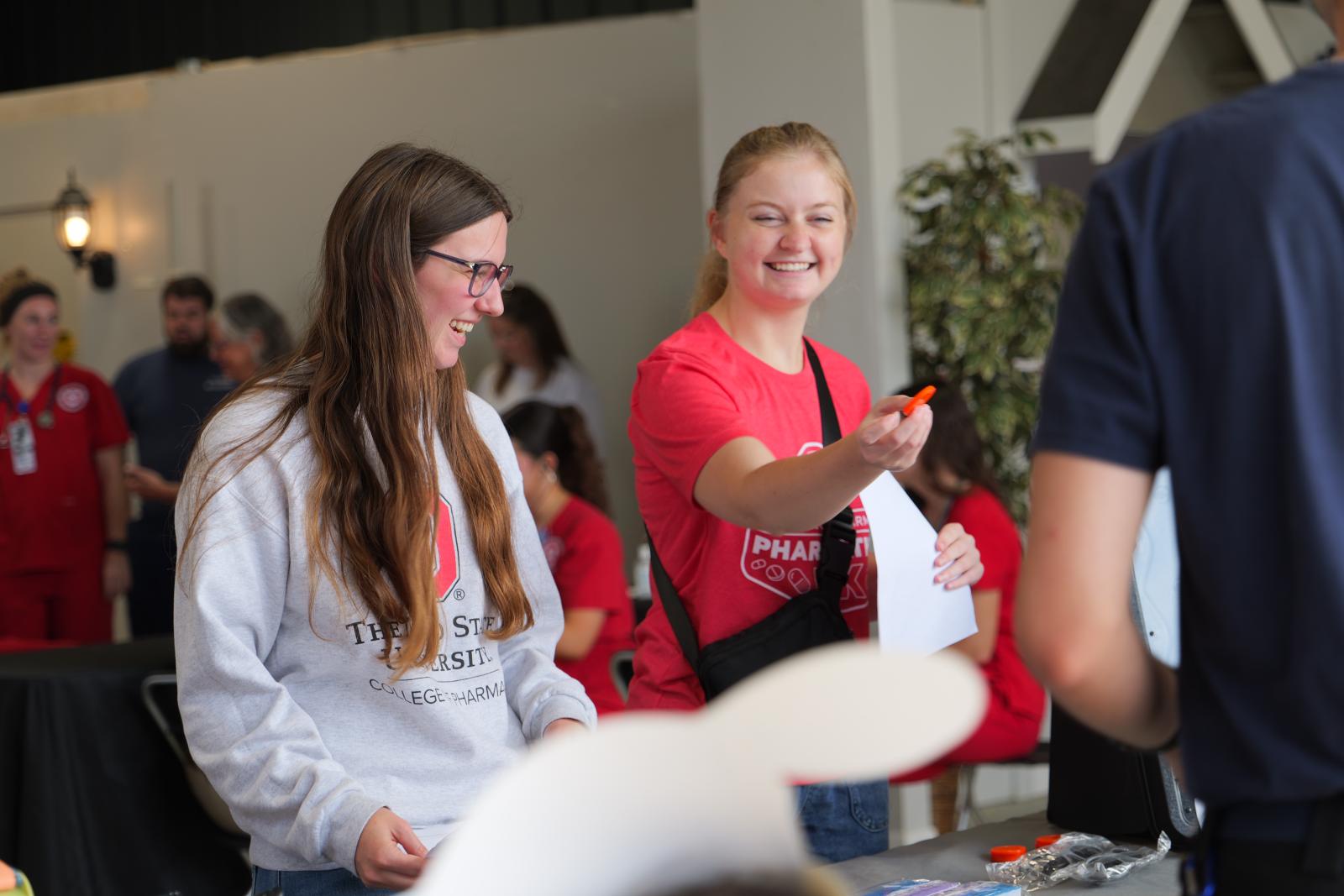
The annual Farm Science Review (FSR) in London, Ohio, covers much more than agriculture.
“For three days in September, you can get your flu shot, get your skin checked for cancer and then mosey on over to buy a tractor when that’s all done,” said Myriam Shaw Ojeda, PharmD, MPH, assistant professor at The Ohio State University College of Pharmacy. “All in Ohio State’s backyard.”
Over 100,000 guests attended FSR 2025, held September 16-18 at the Molly Caren Agricultural Center (MCAC) and co-hosted by the College of Food, Agricultural and Environmental Sciences (CFAES), OSU Extension and the Ohio Agricultural Research and Development Center.
The College of Pharmacy was just one of over 500 exhibitors at this year’s showcase. Others included universities from across the Midwest, other departments and colleges at Ohio State, community partners and farmers from across North America.
Faculty, staff and students from the college connected with community members on medication safety at a Generation Rx outreach station and discussed the purpose of vaccines at a table hosted by Dr. Shaw Ojeda and Daniel Michel, PhD, senior lecturer and director of the Pharmacy Learning Lab at COSI.
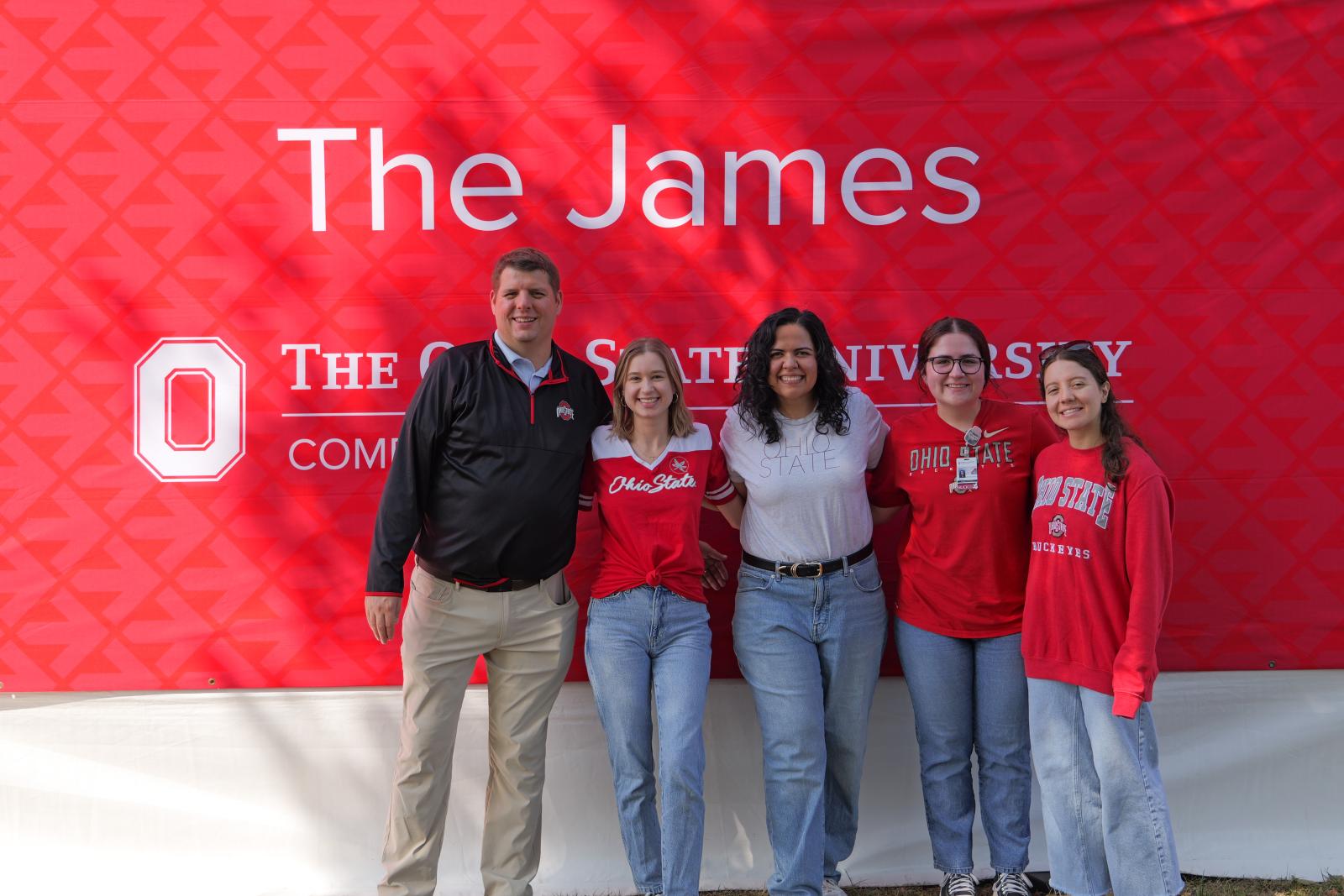
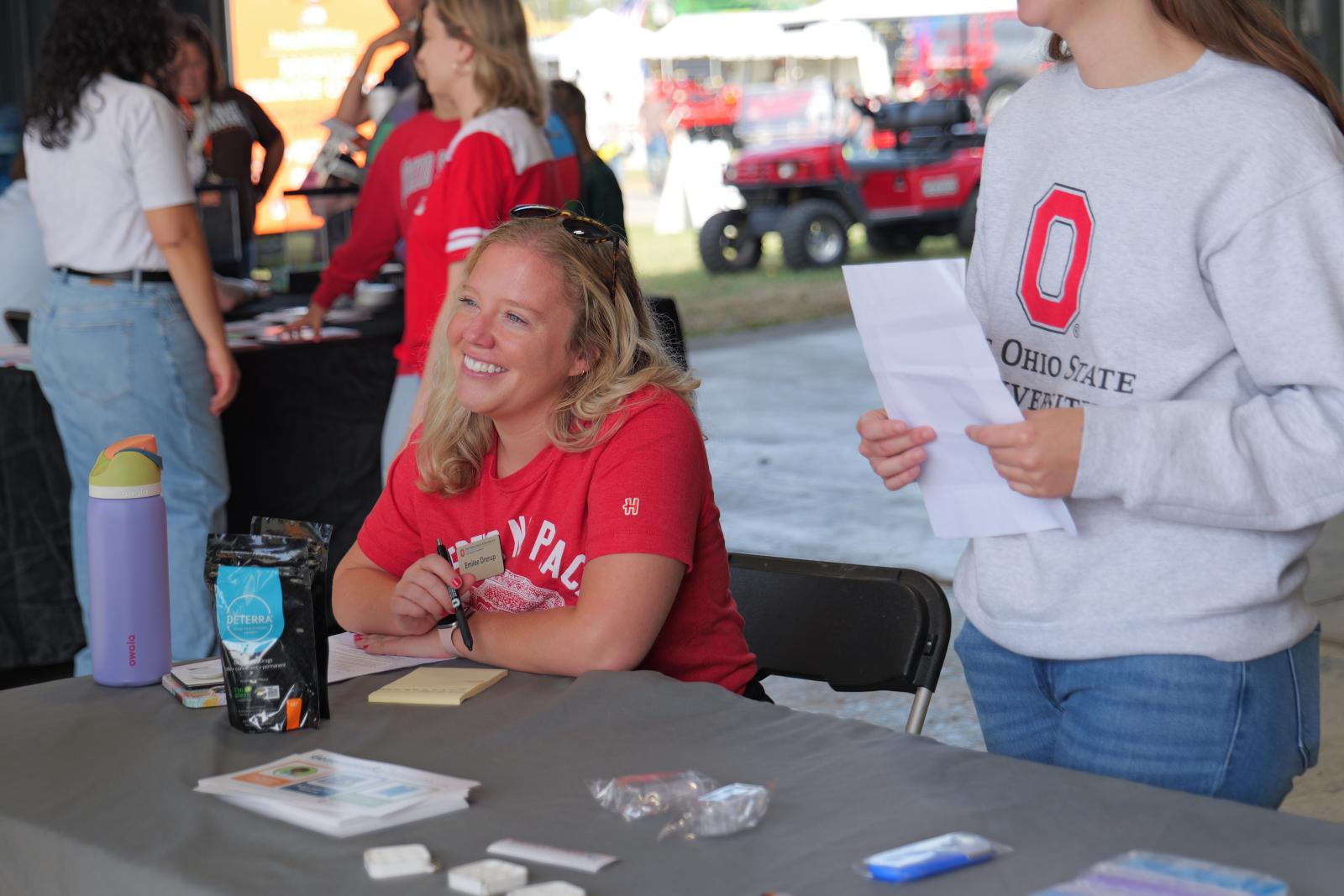
After four years of involvement at FSR, the College of Pharmacy has carved out a niche in the event’s health care building.
“We know that many rural communities are in health professional shortage areas, so residents may have limited access to pharmacists and other health care professionals,” said Emilee Drerup, MPH, CHES, community outreach coordinator at the college. "FSR is a great way to bridge these gaps and provide in-person education and outreach to this population.”
Drerup led this year’s Generation Rx table with assistance from PharmD students Heather Patacca, Reagan Zuelzke and Maya Simpson. Attendees participated in a medication safety trivia game for prizes, which included pill splitters, AM/PM pill boxes and magnifiers. The game was a way to spark one-on-one conversations about safe medication storage and disposal and strategies to avoid unsafe behaviors.
“Coming from a rural area myself and dedicating a lot of my public health career to improving rural health, I truly enjoy working with the population represented at FSR,” Drerup emphasized. “Attendees are always appreciative of the tools and tips that we provide, and they share real-world scenarios of how they will use them, which feels very rewarding.”
On top of providing safe medication use information, Generation Rx distributed a dozen naloxone kits to attendees in the event of an overdose emergency.
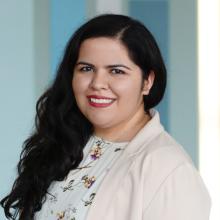
“Every year, when I reflect with the students, they report that they’ve learned something about their communication style or how to turn hard conversations into an educational experience for all parties.”
Across from Generation Rx’s table, the vaccine education crew had their own important conversations.
“When we discuss vaccination in these outreach settings, we are talking about people’s lifestyle choices and what influences them,” Dr. Shaw Ojeda said. “A lot of attendees who stop by our table received vaccines as children but stopped getting them later in adulthood, so we broach the subject with, ‘Why did that change?’ and ‘What are your motivations for being healthy?’ – not always easy questions but important ones that get the conversation going.”
Drs. Shaw Ojeda and Michel were assisted by rotating PharmD students throughout the event, many of whom earned their community engagement hours by engaging with community members about vaccines. The students provided educational vaccine handouts, spoke with visitors about common vaccination myths and received precepting from Dr. Shaw Ojeda.
“Being a pharmacist means you will talk about controversial subjects, so this is preparation for them,” Dr. Shaw Ojeda said. “Every year, when I reflect with the students, they report that they’ve learned something about their communication style or how to turn hard conversations into an educational experience for all parties.”
This year, Dr. Michel introduced a game at the vaccine education table to inspire vaccine confidence across age groups. Similar to tic-tac-toe, one player is the “virus” while the other represents the “immune system.” Initially, the “virus” plays unfairly, gaining extra spots by going out of turn and using more pieces than the “immune system.” But when a vaccine gets introduced in round two, the “immune system” gets a head start, as they’re better prepared and have more pieces than the “virus.” This more often secures a victory for the “immune system.”
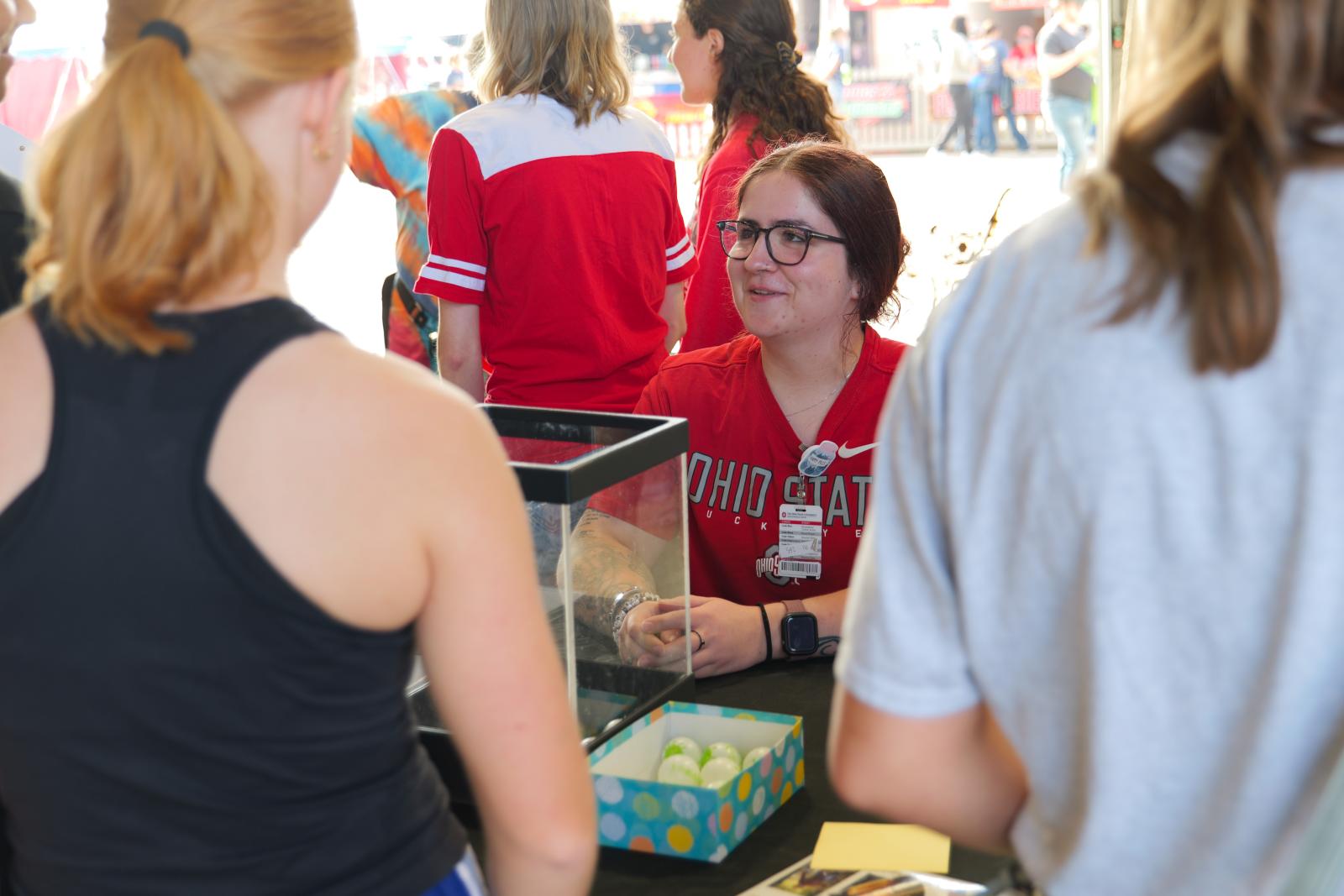
Dr. Michel and his team at the Center of Science and Industry (COSI) COSI Learning Lab launched the game to give patients a better visual of what goes on in their bodies when they get a vaccine.
“I found that audiences really loved this gamified approach to understanding vaccines,” Dr. Michel said.
The game was developed with funding from a College of Pharmacy mini-grant in collaboration with COSI volunteer Kent Kloes, P4 Elizabeth Brown and Josh Gagliardi, manager of the College of Nursing’s Innovation Studio.
Throughout FSR, the College of Pharmacy welcomed visitors of all demographics and successfully initiated conversations about patient health. This unique event provides a way for the college to connect with all corners of the patient community and make health care information accessible to all.
“FSR is such a valuable space to engage one-on-one with folks on health and medication topics,” Dr. Shaw Ojeda said. “We aren’t here to tell people what to do. Outreach and engagement is about understanding the needs of our community and providing them the resources to address those needs, whether that’s through educational materials, providing a pharmacy expert voice or just listening to their concerns.”